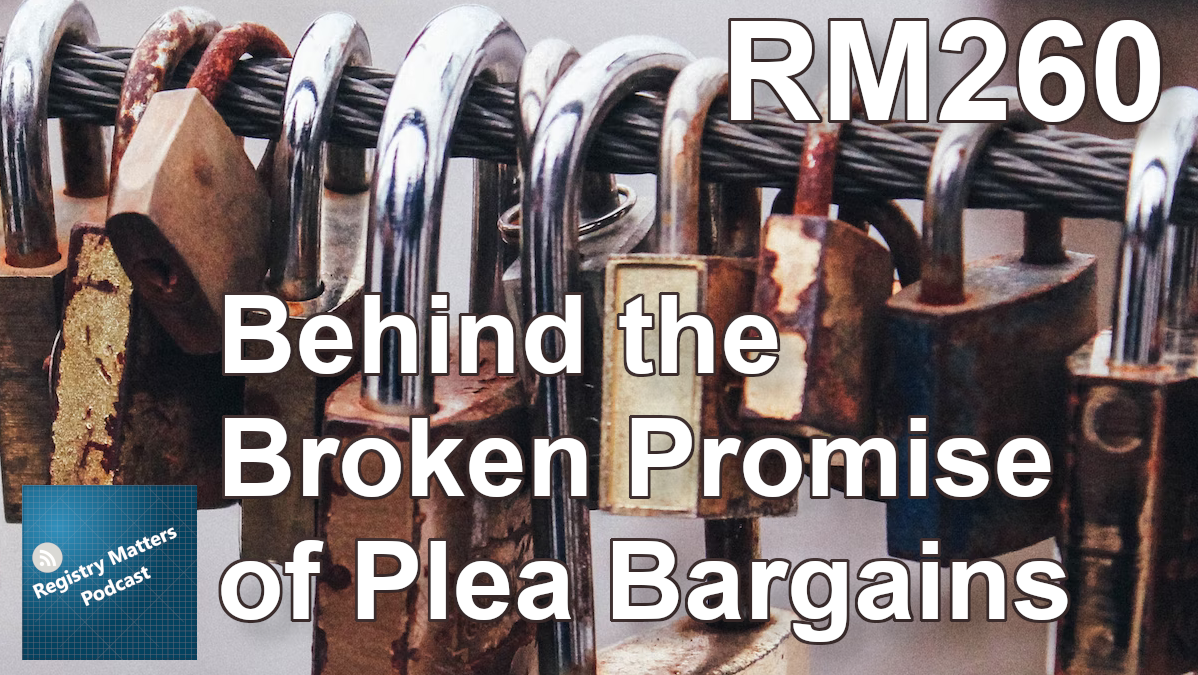Today’s podcasts focuses on plea deals and whether a person should take one. The Plea Bargain Task Force studied the plea deal system for several years. It concluded that the plea deal system needs to be more fairer and more transparent. What would that look like?
For one, defendants should be made aware of the rights they are giving up on taking a plea. Secondly, judges should ask defendants taking a plea more probing questions to make sure the defendant knows what he or she is giving up in return for a deal.
For example, defendants give up the right to cross examine law enforcement and witnesses later. In addition, unless there is serious new evidence you can introduce, evidence that was not available to you at the time you took the plea, the courts are not likely to grant you a trial at a later date.
We discussed the conviction of former Sheriff Victor Hill in Clayton county, Georgia, and whether the punishment he received for unnecessarily strapping prisoners in his custody was adequate. He was sentenced to a year and a half, six years of supervised probation, and 100 hours of community service. In addition, he is forbidden from ever working in law enforcement in any capacity.
Was that adequate time? He received less time than some people who commit less serious crimes. However, his career is ended, his reputation is shredded, and his time behind bars will be difficult due to being a former law enforcement officer. We tend to lock people up for a long time in this country. Arguing that long prison sentences are not helpful and then wanting Victor Hill to receive a longer sentence seems contradictory.
Louisiana House Bill 135 wants to ban PFRs from working at polling stations, and we discuss the approach to take when talking to lawmakers about a bill that is a solution in search of a problem.
Kansas’s shortage of public defenders is just the latest example of a problem in the criminal justice system. Sixty years after the Supreme Court decision in Gideon vs. Wainwright that all defendants should have adequate defense, many states across the country are still not providing enough resources so that public defenders can adequately represent defendants who cannot afford attorneys.
Highlights
[07:05] Discussion of increases in reported sexual assaults at military academies. [13:24] Louisiana House Bill 135. [28:40] Plea bargains. [48:45] Clayton County Sheriff Victor Hill. [57:50] Shortage of Public Defenders in Kansas.How to Contact and Listen to Registry Matters
- https://www.registrymatters.co/podcast/rm241-alabama-rules-pfr-restrictions-just-a-civil-regulatory-scheme
- Leave voicemail: 747-227-4477
- Email us: registrymatterscast@gmail.com
- Support us on Patreon: https://www.patreon.com/registrymatters
- Follow us on Twitter: https://twitter.com/RegistryMatters
- Join the Discord server: https://discord.gg/6FnxwAQm57
- Want to support Registry Matters with some swag: https://shop.spreadshirt.com/registry-matters
- Apple Podcasts: https://itunes.apple.com/us/podcast/registry-matters/id1305039280
- Google Play Music: https://play.google.com/music/listen?u=0#/ps/Icuxbpzvyti7wtoredipbtiojqy
- RSS: https://www.registrymatters.co/feed/podcast/
- Spotify: https://open.spotify.com/show/3d75P7Kc37n2l79m89F9KI
- YouTube: https://www.youtube.com/registrymatters
The Registry Matters Podcast’s mission is to cover issues surrounding the Registry. We cover cases that will peel back the veneer of what we need to do to change our lives for the better. We cover news articles that spark conversations about the total insanity of this modern day witch hunt. This podcast will call out bad policy and call out those that are making bad policy.
To change things for the positive, we need to act. We are 6-7-8-900k strong. With that many people, plus their friends and family, over a million people are affected by the registry. We should be able to secure donations to hire lawyers and lobbyists to move the agenda in our favor. We need our people to be represented.


Leave a Comment